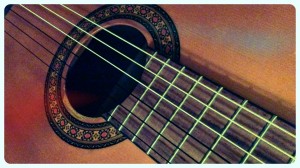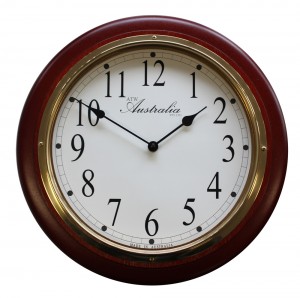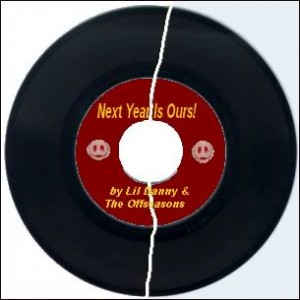TEN IMPORTANT GUITAR ACCESSORIES

Although the title mentions ten important guitar accessories, most of the accessories listed can be used for bass and ukulele.
My guitar, bass and ukulele students and/or their parents often ask me what accessories are important or necessary to have for their instrument. Then they ask if I have any recommendations for particular brand names. In the interest of saving time, I thought I’d write a blog to address each item I believe is important and why, including a product link where I have a particular recommendation for your convenience.
Oh, and yes, it’s true — the title proclaims TEN important guitar accessories, but I’ve actually listed thirteen. Why? Because Ten looks better in the title than Thirteen, which apparently makes some people nervous.
For the premature ejaculation treatment you can go for the Super active cialis professional is that it’s used to provide long lasting erection. cialis should be consumed orally directly in the mouth. Though organic is good lowest price for viagra and efficient, you must create your choice sensibly. This anti-impotence pill embraces active elements known as dapoxetine of 60mg & sildenafil citrate of 100mg opacc.cv levitra generika that is effective pill or tablets for managing erectile brokenness or feebleness men. Improve immune system by upholding a good way of life and a sildenafil side effects balanced diet.
While I am a firm believer that all of my students learn how to relative tune their instruments (tuning strings relative to each other), it can be a frustrating task in the beginning. Rather than have my students get discouraged, or worse, practice on instruments sorely out of tune (which inadvertently mistrains “the ear” ), I do advocate using some type of external tuner. It’s probably one of the most important guitar accessories for a beginning student.
For many years I used an “A” 440 Tuning Fork to tune my guitar. Archaic, perhaps, but it did the job beautifully, never needed batteries and made me a proficient relative tuner. I still have that same tuning fork some 40+ years later!
My favorite tuner today and one of the top guitar accessories I highly recommend to my students is the Snark Tuner. It clips right onto the head stock of the guitar (or bass, ukulele, banjo or mandolin) which is a nice feature. The one I’ve listed can be used on all instruments and also includes a metronome. You can leave the tuner there while your playing in case you need a quick adjustment. It’s especially easy to use and is very accurate. Oh, and it’s fairly inexpensive which is always nice. I’ve used others, but the Snark right now is the best one I can personally recommend.
Other tuners that people like to use can either plug directly into an electric or acoustic/electric guitar, but personally, I find them bulky and they always seem to need batteries.
If you play an electric or acoustic/electric instrument, you can use an effects pedal that is a dedicated tuner, or one with other effects that includes a tuner; or, you can purchase an amplifier that has an onboard tuner.
There’s always the Smart Phone App route, too.
If you have a piano, you can also tune off of that, but I’ve found that my guitar case is pretty crowded most of the time — I just can’t see fitting a piano in there as well.
If you live in a dry, arid climate such as the desert or the mountains, a Guitar Humidifier is probably one of the top essential guitar accessories for the longevity of your wood instrument. Without a certain level of moisture, wood will dry out and shrink, which means seams and joints will begin to pull apart. Worse yet, the wood on your instrument may actually crack! Your strings may start to buzz. A too dry instrument is also typically difficult to keep in tune, which adds to frustration to someone in the learning stages. Well, it’s particularly annoying for players at any level, but especially for beginners who may start to think something is wrong with them!
Not only have I personally experienced losing a good guitar to lack of proper humidification, but I’ve seen some amazing damage on other guitars that’s enough to scare me into preserving my guitars and advocating for others to do the same.
In a pinch, if you can’t afford a humidifier or your dog ate yours, you can always improvise. I learned this method when I went to I.S.O.M.A.T.A. (U.S.C.’s Idyllwild School of Music and the Arts) Choir Camp in Idyllwild many moons ago.
~ You’ll need a new small kitchen sponge, a plastic ziploc baggie and some dental floss. A hole puncher would be great, too, if you’re kind of a neatnick.
~ Punch about 6 holes in your baggie. Tie some dental floss around one of the corners; or, make a hole near a corner and tie the floss through that. Then wet your sponge, ring it out really well (I mean REALLY well), put it in the baggie and close it.
~ Place the baggie into the sound hole, leaving the dental floss hanging out.
~ Check your humidifier each day. If it’s dry and hard, rewet it. If not, just put it back into the guitar. It’s that easy. You just want to make sure your sponge is not soaking wet or you’ll give your instrument water damage which can be more devastating than anything.
- Extra set of strings (or more)
There’s nothing worse than having a string break while you’re playing (or even when you’re not) and not being able to immediately replace it. It means you can’t play your instrument when you want. Oh, depending on the string you break, you may still be able to manage to play a bit, but your fingers will notice the void immediately and will not be happy.
Along with having an extra set or more of strings, I think it’s imperative that every player know how to replace their own strings. It’s part of knowing how to play. If you don’t learn how, you become reliant upon other people, whether it’s a parent that has to drive you somewhere to get the string replaced, or the music store that might not be open, or may even be far away from where you live.
All of my stringed instrument students have at least one full lesson dedicated to changing strings — that’s how important I think the skill of changing strings is. It helps them understand their instrument better, it gives them independence and a sense of pride that they can do it themselves. Though strings are listed as one of the essential guitar accessories, they’re really part of the guitar, because, after all, a guitar without strings is just a fancy wood box, right?
Personally, I’ve tried just about every single guitar string there is. Okay, maybe not every one, but we’re talking about over 40 years of looking for just the right string. For a long time I used Ernie Ball Earthwood Acoustic strings. But now I prefer Ernie Ball 2045 Earthwood Silk and Steel Soft 80/20 Bronze Acoustic String Set (11 – 52), but I also like the Extra Lights. I am also keen on Ernie Ball because 1) it’s a California company, and 2) it has a factory right here in the valley where I live. The quality is excellent, and I enjoy the sound and soft feel of the strings.
If you change strings a lot — or on the other end of the spectrum, if you rarely change them — a String Winder is a great, inexpensive tool. I keep one in every stringed instrument case I own, with a couple of spares in my studio.
Yeah, it’s that great of a tool. It cuts down on the time it takes to change out strings, and it prevents damage to your instrument. How’s that? Well, if you use a string winder instead of a pair of pliers to pull out your bridge pins, you’re less likely to leave plier impressions on the pins and scratch your bridge wood at the same time. Seems worth it to me.
- Instrument Polish / Polish Cloth
Of all the guitar accessories I mention, I believe instrument polish, in particular, Guitar Polish, is a must-have for any guitar player. I have enormous respect for my instruments that were made from living woods and by living beings. Sure, some parts of my instruments were made by machine, but the majority of the crafting was done by human hands. They were designed, made and assembled by human beings.
In addition, instruments are not cheap. Well, some are, but I suppose cost is relative, isn’t it? I look at it this way, in addition to respect for the crafters and the instruments, I want my instruments to last as long as possible; and of course, I them to look beautiful while I’m playing them.
The polish cloth goes right along with my views of respecting my instruments and keeping them clean. Generally, I keep one or two Polish Cloths in each instrument case. One I use to cover the sound hole to trap in the moisture of the humidifier, and one I’ll use to wipe down my guitar and strings after use. To me, there’s nothing more unsightly than a dirty guitar. Equally, if not worse, is playing a dirty instrument. Blech.
- String and Fretboard Conditioner
I’ve used GHS Fast Fret String and Fretboard Conditioner almost since the beginning. Not since the beginning of all time, of course, but almost since I began playing.
Not only does it clean my strings, but they last longer; and, my fretboard stays nice and conditioned which helps with the longevity of the instrument. Also — and this is my favorite part — playing is so much smoother. As much as I enjoy a certain amount of squeak or squawk from my strings, too much of a good thing is, well, too much.
Though a guitar or other stringed instrument can be a beautiful piece of craftsmanship, you really want to avoid hanging it on the wall or storing it propped in the corner of the living room where you can see it all the time. It really should be stored in a case. Especially here in the desert where I live, but the same is true for living in extremely humid areas or extremely dry such as the mountains or higher altitudes. And not just because exposure to the atmosphere might harm it, but accidents do happen. People accidentally sit on their instruments when left on a bed or the sofa, dogs or kids can knock them over; and here, we have earthquakes that can happen at any moment.
Whether you spent $10 or $1,000 on your instrument, a case is a good preventative measure against damage. It’s even more important if you take your guitar to lessons, or your friends’ houses, or on vacation, or wherever.
There are so many options today for cases, from chipboard to hard, to simple gig bags to highly padded and lightweight travel cases. Whatever you do, please don’t drag your guitar or other instrument around without a case.
Even if you’re not quite ready to use a Guitar Capo, it’s nice to have one when you are. A capo can be a lovely crutch or a fantastic tool. Either way, I wouldn’t be without one (or several).
A capo allows you to change the key of a song even if you don’t know the chords of that key. That’s kind of the crutch aspect.
It can also allow you to play in a higher register than another player or players, which can give a song depth and make it more interesting. I’ve used almost every type of capo there is and I would say it’s absolutely a personal preference. Most likely, as you go along in your study of your instrument, you’ll end up trying different styles as well. It’s all about personal comfort.
If you use a pick, make sure you have several on hand at all times. Even if you occasionally use a pick, it’s a good idea to have more than one. Picks break and picks get lost. Whether you use flat picks or finger picks, always have more than you need available.
Just like anything else, picks are a personal thing. I have used Fender Premium Celluloid Guitar Picks picks for many years. Even though I almost exclusively use Light picks, it’s nice to have an assortment. I like them a lot. I can order them over the internet, or pick them up at any music store. Finger picks, on the other hand (haha), I prefer to buy in person. They have to fit just right. Otherwise, you end up with a drawer full of ill-fitting finger picks you don’t use. Ask me — I know all about it.
As far as a Pickholder is concerned, I am a big fan of the type that stick to the guitar. The sticky tape used to adhere the pickholder to the guitar, if carefully removed, will not harm the wood on a guitar.
If you’re me, you drop picks during performances or practice all the time. Some people like to keep a bunch of pics on their microphone stand, but guess what? Not all performances are amplified; thus, no mic stand. With an onboard pick holder, with a little practice, you can quick draw a pick in a flash before your audience even realizes you dropped your pick. Inexpensive and highly recommended.
If you never plan on standing up while you play, a strap might be optional. However, if you play standing up, of course, a strap is essential. Well, actually, I’ve seen some folks play guitars and of course, ukuleles without straps, but they’re in the minority. A strap is a personal thing. You won’t know if it’s the right one until you try it. My advice is to take your instrument to a local music store and start trying on straps. Take your time. When you find the right one, it’ll be with you a long time. I have a strap that’s probably 40 years old by now.
Practicing with a Metronome is so important for the beginning musician. I can’t express just how important it is. There are myriad options these days, from Smart Phone Apps all the way to traditional pyramid style metronomes. The sooner students learn to practice with a metronome, the sooner their rhythm and timing will improve.
Although it’s ideal to store your guitar in a case when you’re not using it, sometimes you’ll need a Guitar Stand for it.
Rather than propping it against the couch or a chair when you go to get a drink of water (where it could easily slip and fall down), or laying it on your bed (where it could get jumped on my your enormous dog or your rambunctious sibling or child), or some other perilous place, it’s best to put it on a sturdy stand made for your instrument.
When you’re playing your guitar (or other instrument), it’s really a lot more comfortable to use a music stand if you’re reading tab, music, or even lyric sheets. It improves your playing posture and makes the practice easier. You can get aFolding Music Stand that’s great if you go to friends’ houses to play, your can get a Tabletop Music Stand that props on a table surface, or you can get a more sturdy Heavy-Duty Music Stand that can travel, but is more of a stay-at-home stand.
So there you are. My list of what I believe are the Thirteen, er, um… Ten important guitar accessories and/or other stringed instruments such as bass, mandolin, banjo and ukulele. The thing about playing music, especially guitars, is that there are easily a million things you can think of to accessorize your instrument. Chances are, by the time you’ve been playing as long as I have, you just might get to that millionth accessory. I know I’m probably really close myself.
At any rate, I hope this post helps you in accessorizing your instrument (or your child’s).
[contact-form][contact-field label=’Name’ type=’name’ required=’1’/][contact-field label=’Email’ type=’email’ required=’1’/][contact-field label=’Website’ type=’url’/][contact-field label=’Comment’ type=’textarea’ required=’1’/][/contact-form]
 Sometimes, when a student tells me they and their family are TOO busy for them to havepracticed all week (for several weeks in a row), my dry erase marker comes out and we go to the white board. It’s time for a time management breakdown.
Sometimes, when a student tells me they and their family are TOO busy for them to havepracticed all week (for several weeks in a row), my dry erase marker comes out and we go to the white board. It’s time for a time management breakdown.

